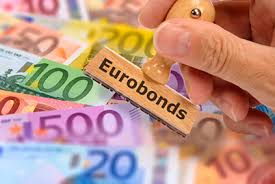The Federal Government of Nigeria has successfully returned to the international capital market with a $2.25 billion Eurobond issuance, attracting an impressive $9.1 billion in investor orders despite global uncertainty and recent political tension triggered by United States President Donald Trump’s remarks about possible military action against Nigeria.
According to the Debt Management Office (DMO), the new Eurobond offer was heavily oversubscribed by more than four times, reflecting renewed investor confidence in Africa’s largest economy and the country’s reform-driven fiscal management under President Bola Ahmed Tinubu’s administration.
The dual-tranche Eurobond consists of 10-year and 20-year notes, priced at yields of 8.75 per cent and 9.25 per cent respectively. These rates were lower than the initial guidance of 9.125 per cent and 9.625 per cent, an indication of strong market appetite for Nigerian debt instruments.
The DMO disclosed that the 10-year tranche, which aimed to raise $700 million, received $4.9 billion in bids, while the 20-year tranche, targeting $1.5 billion, attracted $4.2 billion in offers. The proceeds from the issuance will be used to fund the government’s budget deficit and refinance a $1.1 billion Eurobond that is due for repayment later in November 2025.
The bond sale came just days after President Trump’s controversial statement alleging religious persecution in Nigeria and warning of potential US military intervention. The comments briefly affected Nigeria’s long-term sovereign bond, with the 2051 issue dropping by about 0.5 cents earlier in the week before recovering as investor demand strengthened.
Market analysts said the success of the Eurobond offering shows that investors are choosing to look beyond short-term political noise and focus instead on Nigeria’s attractive yields, large market potential, and improving fiscal outlook.
Nigeria’s return to the Eurobond market also reflects a broader resurgence in African sovereign debt issuance this year. The Republic of Congo, for example, issued its first Eurobond in nearly two decades — a $670 million, seven-year note priced at a yield of 13.7 per cent. Similarly, Kenya and Angola returned to the market last month, encouraged by lower global borrowing costs and renewed appetite for high-yield emerging market assets.
Data from JPMorgan Chase & Co. revealed that the average spread for African sovereign debt over US Treasuries has declined to about 379 basis points, nearly half of what it was in April 2025. The trend suggests growing investor confidence in African economies and improving debt sustainability across the continent.
In September, the Federal Executive Council approved the plan to raise $2.3 billion through Eurobond sales as part of Nigeria’s 2024–2025 borrowing programme, with an additional $1.1 billion reserved to refinance maturing external debt. The National Assembly had earlier endorsed a foreign borrowing ceiling of $2.85 billion.
The November issuance is the country’s first since December 2024 and marks another major step in the government’s plan to rebalance its debt portfolio, increase foreign exchange reserves, and attract more foreign capital inflows amid tight domestic liquidity and growing fiscal pressures.
Despite ongoing debate about the sustainability of Nigeria’s rising debt-servicing obligations, the high level of investor interest in the bond sale demonstrates continued global faith in the government’s economic reform agenda, which includes fiscal discipline, foreign exchange market unification, and pro-investment policies.
The DMO said the 10-year notes are due in January 2036, while the 20-year tranche will mature in January 2046. Analysts believe the successful issuance will help strengthen Nigeria’s foreign reserve position and enhance its credit profile ahead of future borrowing plans.
The Eurobond sale is also expected to support the Federal Government’s ongoing efforts to attract portfolio investors, stabilise the naira, and create fiscal space for infrastructure and social investments.
Economists have noted that the outcome of this bond issuance may serve as a confidence booster for Nigeria’s broader economic recovery drive, particularly as the country continues to navigate global uncertainty, currency volatility, and domestic inflationary pressures.
